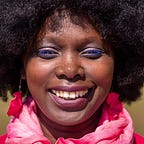Covid19: Vulnerable populations are left behind.!They are suffering!
The Earth has been shaken and there is panic in even the most affluent communities on earth. Wealth and privilege are no longer a badge of honour, nor are they a protector. The message from the British Government is that “we are all in this together” but this message of collectivism is nothing more than political spin. Although COVID-19 does not discriminate, it does disproportionately affect poorer communities and vulnerable populations such as refugees and asylum seekers.
How then must the pandemic be affecting those communities living in the slums of Mumbai in India, favelas of Sao Paolo in Brazil and refugee camps of Kakuma in Kenya? Those who lack the most basic services taken for granted in the UK such as reliable sanitation services, clean water supply, reliable electricity and law enforcement. Such marginalised populations who are already dealing with a lack of proper infrastructure are now also at increased risk from COVID-19. As the focus shifts to the distribution of masks, soap, hand sanitisers and supporting the primary-care capacity in case the virus rapidly spreads, concerns for the physical and mental health of such populations increases.
During the launch of a $2 billion global humanitarian response plan to fund the fight against COVID-19 in the world’s poorest countries, the UN Secretary General António Guterres said “The virus is arriving in countries already in the midst of humanitarian crises caused by conflicts, natural disasters and climate change. Populations who rely on philanthropy and global aid may now see funding drying up, schools being closed, and support programs cancelled. Although hundreds of organisation and businesses are trying to protect them as much as they can by donating millions toward the global crisis, the support structures for these vulnerable populations are getting weaker. School closures mean that pupils miss out on school meals and are more open to abuse from people that should look after them. With domestic violence also on the rise as parents lose their jobs and therefore their incomes, our young people even more vulnerable when funds are cut.
UNESCO have rallied international organisations, civil society and private sector partners in a broad coalition to ensure #LearningNeverStops, but global school closures currently affecting 87% of the worlds students will disproportionately affect vulnerable and disadvantaged students who rely on schools not just for their education, but for a range of social services including health and nutrition. For the young boys and girls growing up in the world harshest environments, content is not what is missing but infrastructure, safe spaces and connectivity. Further collaboration with business partners is needed to provide data bundles, hardware and access to learning materials for these communities to ensure that they remain connected and informed during this global pandemic. iamtheCODE are already providing Kano computer kits to the most vulnerable enabling them to gain skills in coding and programming and enhance their employability in the future, but more collaborative projects are required to strengthen and develop their work.
Although there are limitations in the current climate of COVID-19 and associated social distancing recommendations, sport and physical activity still need to be encouraged in these hard to reach communities. Sport can enhance mental health by delivering social, psychological and physiological benefits, tackling and preventing obesity and reducing the risk of contracting non-communicable diseases by strengthening cardiovascular health. Sport-based social programmes promote mental well-being for at-risk communities through trauma counselling and inclusion efforts and as a platform for health education, particularly to disseminate information on sexual and reproductive health, alcohol and substance abuse, as well as communicable diseases such as malaria and HIV/AIDS.
By introducing wellbeing clubs globally iamtheCODE strive to educate young girls and boys about the importance of maintaining physical and mental health, protecting their environments and communities. In addition, twelve week mentoring programmes can measure the impact of such programmes and help to strengthen the curriculum moving forward. Such initiatives will go some way to combat loneliness and isolation, both identified as major contributors to poor mental health, with anxiety and depression both attributed to lack of human contact . Even where there are established mechanisms in place to deal with poor mental health, such facilities will be suffering increased demand due to the enforced isolation as a result of the social distancing measures put in place to combat the spread of COVID-19. Undoubtedly, newly emergent social impacts yet to be recognised will also need consideration and again, it will be the marginalised and vulnerable who will have limited access to such facilities.
Although the G20 Summit leaders have committed to doing whatever it takes to overcome the pandemic , millions of young girls and boys are being left increasingly vulnerable in these difficult times. We must not forget post-pandemic, that millions of the most vulnerable populations were living tragic lives BEFORE the COVID-19 crisis, therefore designing new solutions must become a priority. The entire world can see that COVID-19 is affecting the poor and the rich. The virus respects no borders, no race, no gender and no age, but the vulnerable in this world will be at a greater risk due to the lack of infrastructure, moral leadership, transparency, effective collaboration and funds.
Technology will change lives, but the digital divide must be prioritised, young girls and boys must have tools every day, not just when there is a pandemic.
I have written a letter to young girls and boys living from the most marginalised communities in the world. Listen here
